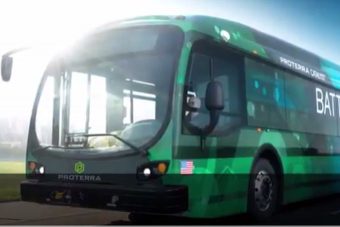
The City of Porterville in California has entered into a sales contract with GreenPower Motor Company for the purchase of 10 EV350 40-foot zero-emission, all-electric, transit buses.
The purchase will see all 9 of Porterville Transit’s routes go fully electric. Accompanying the purchase, 11 charging stations are to be installed at the transit service’s maintenance facility and transit center — for a total purchase price of around $9 million.
In addition, the sales contract provides the City of Porterville the option of buying an extra 20 buses, with the same terms and conditions being applicable as with the first purchase.
“We are going to be the first transit fleet in California to be zero-emissions/all-electric and look forward to working with GreenPower to replace our aging and polluting active-fleet,” commented Richard Tree, Transit Manager, Porterville Transit. “Companies like GreenPower are driving the industry forward, and making all-electric the new norm in public transportation, while playing a significant role in accomplishing our mission to improve the environment in our community and the Valley as a whole.”
As it stands, the first bus of the order is expected to be delivered by Autumn 2017. The remaining 9 will then be delivered over the following 3 to 4 months.
“This conversion of the entire Porterville transit system to GreenPower zero-emission buses is the most innovative project that I have been part of to date, and it is ground-breaking for the industry,” stated Brendan Riley, President of GreenPower. “In addition, we have 20 buses available on this contract for other transit properties, including the San Joaquin Valley Air Pollution Control District who are seeking to deploy not just a zero-emission vehicle, but a zero-emission solution.”
Overall, that sounds like a pretty good deal for the City of Porterville. Getting diesel buses off the roads is of course always an easy way to reduce local air pollution emissions.
Porterville bought Proterra electric buses back in 2015, but then made the momentous announcement at the end of 2016 that it would go fully electric.
Source: cleantechnica.com



